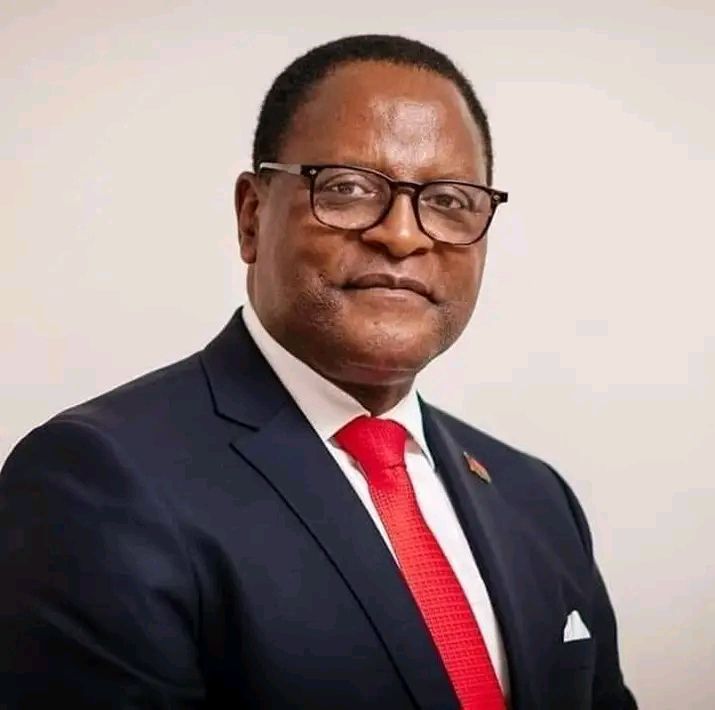By Twinks Gadama
The tragic plane crash that claimed the life of Vice President Saulos Chilima and eight others left a profound impact on Malawi, stirring emotions of grief, anger, and a thirst for accountability. In the wake of such a calamity, the establishment of a commission of inquiry was a necessary step to uncover the circumstances surrounding the crash and to provide closure to the families affected. However, the recent decision by President Lazarus Chakwera to advise the commission to present its findings to the public before submitting them to him has raised eyebrows and sparked a debate about transparency, governance, and the role of leadership in times of crisis.
At first glance, the president’s directive may appear to be a commendable move towards transparency and public engagement. By allowing the commission to present its findings to the public, Chakwera seems to be promoting an open dialogue about the events that transpired and the factors that led to the tragic accident. In a democratic society, such an approach can be seen as a way to empower citizens, allowing them to engage with the findings and hold their leaders accountable. However, the underlying implications of this decision warrant a deeper examination.
In a nation still grappling with the aftermath of the crash, the public’s demand for answers is palpable. The families of the victims, as well as the broader Malawian populace, are seeking clarity on what went wrong and who, if anyone, is to blame. By delaying the submission of the report to the president, Chakwera risks creating a perception of obfuscation. It raises questions about whether the government is attempting to control the narrative surrounding the crash or if there are elements within the report that may be politically sensitive. The public’s trust in their leaders hinges on the belief that they are being told the truth, and any hint of manipulation can lead to widespread disillusionment.
The question that boggles minds of many is ,why this report is to be presented to the public first? How many reports are being kept by Chakwera that were not released for public consumption?

Moreover, the president’s decision to prioritize a public presentation over a direct submission to him can be interpreted as a strategic maneuver. In a political landscape where accountability is paramount, Chakwera may be attempting to distance himself from the findings of the commission. By allowing the public to engage with the report first, he can gauge the reaction and potentially deflect any backlash that may arise from the findings. This approach could be seen as an attempt to shield himself from political fallout, especially if the report implicates government officials or highlights systemic failures within the aviation sector.
The president is absolutely fooling the nation as he is aware of the contents of the findings. Submission of the report to him will just be ceremonial.
The notion that the president is “fooling Malawians” is not unfounded. There is a growing sentiment among the populace that their leaders are often more concerned with maintaining power than with serving the public interest. The perception that Chakwera is sitting on reports that have not been released to the public only exacerbates this feeling. In a country where trust in government institutions is already fragile, such actions can lead to a further erosion of confidence in leadership. Citizens may begin to question the integrity of the commission itself, wondering if its findings will be manipulated or suppressed to protect political interests.
Furthermore, the decision to delay the submission of the report raises concerns about the potential for misinformation and speculation. In the absence of official findings, the public may turn to alternative sources for information, leading to the proliferation of rumors and conspiracy theories. This can create a chaotic environment where the truth becomes obscured, and the focus shifts from accountability to sensationalism. The government has a responsibility to provide clear and accurate information to its citizens, especially in the wake of a tragedy that has captured national attention.
The implications of this situation extend beyond the immediate context of the plane crash. It reflects broader issues within Malawian politics, including the struggle for transparency, accountability, and good governance. The public’s demand for answers is not just about the crash itself; it is emblematic of a larger desire for a government that prioritizes the needs and concerns of its citizens. When leaders fail to meet these expectations, they risk alienating the very people they are meant to serve.
In light of these considerations, it is essential for President Chakwera to recognize the significance of his actions and the message they send to the public. The decision to allow the commission to present its findings to the public first should not be a means of deflection or political maneuvering. Instead, it should be an opportunity for genuine engagement and accountability. The president must demonstrate a commitment to transparency by ensuring that the findings are made available in a timely manner and that the public is given a platform to discuss and respond to the report.
Ultimately, the tragedy of the plane crash serves as a reminder of the fragility of life and the importance of accountability in governance. The families of the victims deserve answers, and the Malawian public deserves a government that is willing to confront uncomfortable truths. President Chakwera has the opportunity to lead by example, to show that he values the lives lost and the concerns of his citizens. By embracing transparency and accountability, he can begin to rebuild trust in his leadership and demonstrate that he is committed to serving the best interests of the nation.
In conclusion, the decision to delay the submission of the commission’s findings to the president raises significant questions about transparency, accountability, and the role of leadership in Malawi. While the intention may be to promote public engagement, the potential for political maneuvering and the risk of misinformation cannot be overlooked. As the nation awaits the findings of the commission, it is imperative for President Chakwera to prioritize the truth and the needs of the Malawian people, ensuring that the legacy of the tragic plane crash is one of accountability and healing rather than confusion and distrust.
Above all president Lazarus chakwera is fully aware of the contents of the findings.










